Festspielhaus Baden-Baden
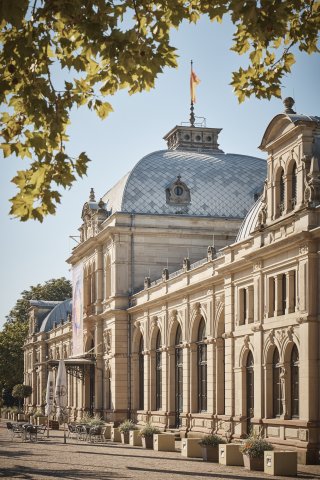
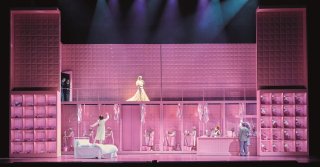
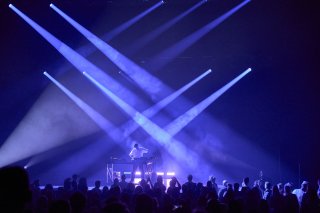
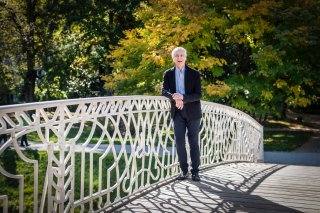
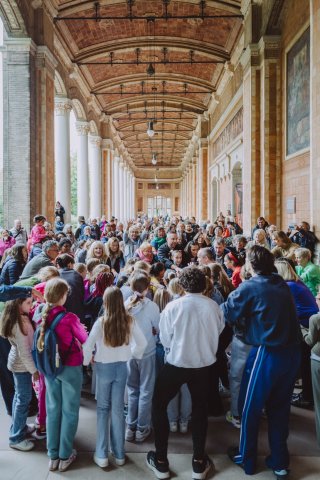
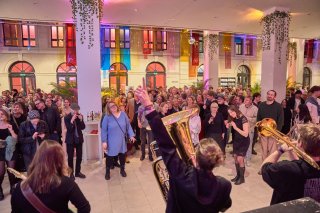






With its 2,500 seats, the Festspielhaus is one of Europe’s largest classical music venues. It features unique architecture, the auditorium and stage located on what was once the track area of the city’s former railway station dating from the late nineteenth century. The magnificent Gründerzeit building with its richly decorated ticket hall serves as the entrance to the Festspielhaus. Viennese architect Wilhelm Holzbauer designed the newly constructed stage area with light-filled foyers in the mid- 1990s. The room acoustics are the work of renowned Munich engineer Karlheinz Müller.
Festivals can look back on a long tradition in Baden-Baden. Around the middle of the nineteenth century, the city flourished culturally. After the ban on gambling in France, French casino owner Jacques Bénazet and his son and successor Édouard lured wealthy people and aristocrats to Baden-Baden. They were followed by the artists, including French composer Hector Berlioz, who organized summer festivals in Baden-Baden for over ten years. The festival idea took such deep roots in the city that in 1871, the offer was made to Richard Wagner to build his festival hall here; however, he had already decided on Bayreuth.
The Festspielhaus Baden-Baden has been continuing this tradition since its opening in 1998. Concert operations are financed without public subsidies by the non-profit Festspielhaus Foundation, ticket sales, and private donations from sponsors, partners, and the Friends of the Festspielhaus association. The Festspielhaus presents performances year-round. In between the year’s seven festivals, it also offers its audience classical concerts, operas, dance, jazz, musicals, and entertainment events as well as programs for young audiences and children. Workshops and hands-on music festivals are regularly part of the program. Rental possibilities are also offered for corporate events and banquets.
An important and unique feature of the Festspielhaus compared to other European concert halls is that it presents its own opera production. Every year, the Easter Festival brings a newly produced festival opera to the stage. Directors such as Robert Wilson, Robert Carsen, Lydia Steier, and Johannes Erath stage operas by Verdi, Wagner, Puccini, and Richard Strauss with singing stars such as Sonya Yoncheva, Anna Netrebko, Piotr Beczala, and Jonathan Tetelman. The Easter Festival showcased the Berliner Philharmoniker from 2013 to 2025. In 2026, the festival will feature the Royal Concertgebouw Orchestra Amsterdam with Klaus Mäkelä and the Mahler Chamber Orchestra with Joana Mallwitz.
Before the Easter Festival, the year begins at the Festspielhaus with the Takeover Festival. Takeover seeks out connections between electronic and improvised music on the one hand and classical music on the other. Another focus is on dance and workshops, which allow the audience to get close to the artists, opening up new, more active connections with art. The festival is growing from year to year with new formats that promise to provide ideas for the year’s other festivals – such as the Berlin Techno Ballet in 2026, which dissolves the boundaries between stage and dance floor and where the (dancing) audience becomes a part of the performance.
The Whitsun Festival features the SWR Symphonieorchester with large-scale symphonic works and its rich performance tradition interpreting music of the twentieth and twenty-first centuries. In 2026, the orchestra will present a concert-version opera for the first time, Richard Strauss’s Der Rosenkavalier, with a world-class cast.
Yannick Nézet-Séguin, Music Director of the Metropolitan Opera New York and Chief Conductor of the Philadelphia Orchestra, curates the Summer Festival every year. The Chamber Orchestra of Europe is a regular guest at the festival, and Nézet-Séguin has also brought the MET Orchestra and London Symphony to Baden-Baden over the summer. A song and chamber music recital where the renowned conductor sits at the piano and accompanies fellow stars is already a tradition at the Summer Festival.
Autumn begins with The World of John Neumeier, the world's only festival curated by legendary choreographer John Neumeier. With the Hamburg Ballet and other companies, Neumeier presents his own ballets and works by choreographers that are important to him. For the Autumn Festival as well, the Festspielhaus initiates collaborations with regular partners and continues them over multiple years. Thomas Hengelbrock, the Balthasar Neumann Choir, and the Balthasar Neumann Orchestra bring historically informed choral music, concert-version or semi-staged operas, and symphonic works to the Festspielhaus. An important element in these concerts is opening up new perspectives on well-known works through historical research.
The Festspielhaus celebrates the Winter Festival with Iván Fischer and the Budapest Festival Orchestra. Fischer presents a new opera production every year at Christmastime. Another integral part of Fischer’s program is Johann Sebastian Bach’s Christmas Oratorio. With an internationally renowned guest company, the festival continues another Christmas tradition: the spectacular, fabulously staged, and superbly danced fairy-tale ballet which can be enjoyed by the whole family.
